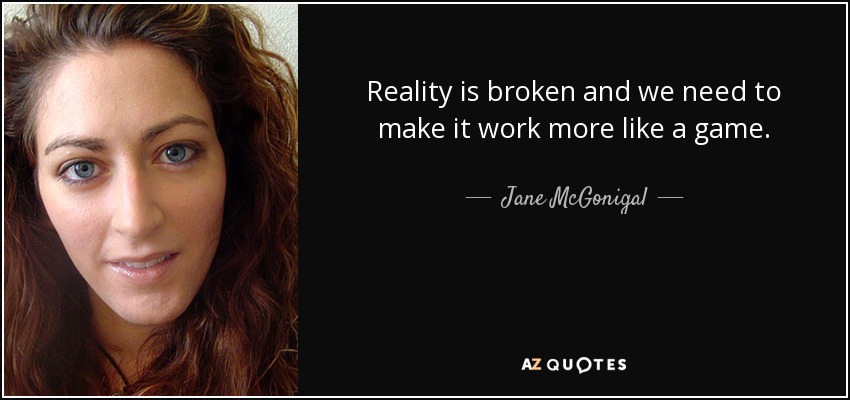


But she has also turned her work inward-when she suffered a debilitating head injury in 2009, she ended up designing a game called Superbetter that she now credits with being instrumental in her recovery. One of the most prolific game designers around, McGonigal usually tries to help other people, or at least get other people to think, with her projects. And now, McGonigal has published her first book, a big-picture tome called " Reality is Broken," which takes the research she had been talking about and implementing in her games, and in keynote addresses from SXSWi to the Game Developers Conference to TED, and beyond, and uses it to make the argument the whole world can see, that games can make the world a better place. She first came on the scene as one of the people behind the hit alternate-reality game I Love Bees and soon began earning notoriety for the projects she herself designed-Tombstone Hold'em World without Oil, which tasked players with imagining scenarios in a post-peak oil world The Lost Ring, which was commissioned for the 2008 Beijing Olympics and introduced a "lost" Olympic sport to thousands across the globe Superstruct, which asked players to come up with solutions to the kinds of massive problems that could threaten the future of our species and more.Īlong the way, she became a research director at the Institute for the Future. Over the years, McGonigal's work has received more and more attention. Especially the idea that game designers might just be the very people that had the best chance of positively impacting the most lives. And while there was still plenty of skepticism, the woman behind the research, well-known game designer Jane McGonigal, began to attract a lot of attention with her new claims. Everyone knew that games were a massive waste of time and that, if anything, they were harming those who played them the most.īut then word began to spread of new research that showed just the opposite: that games, and playing games, could have a positive impact on people.

Until a couple of years ago, the idea that games could make people's lives better was heresy.


 0 kommentar(er)
0 kommentar(er)
